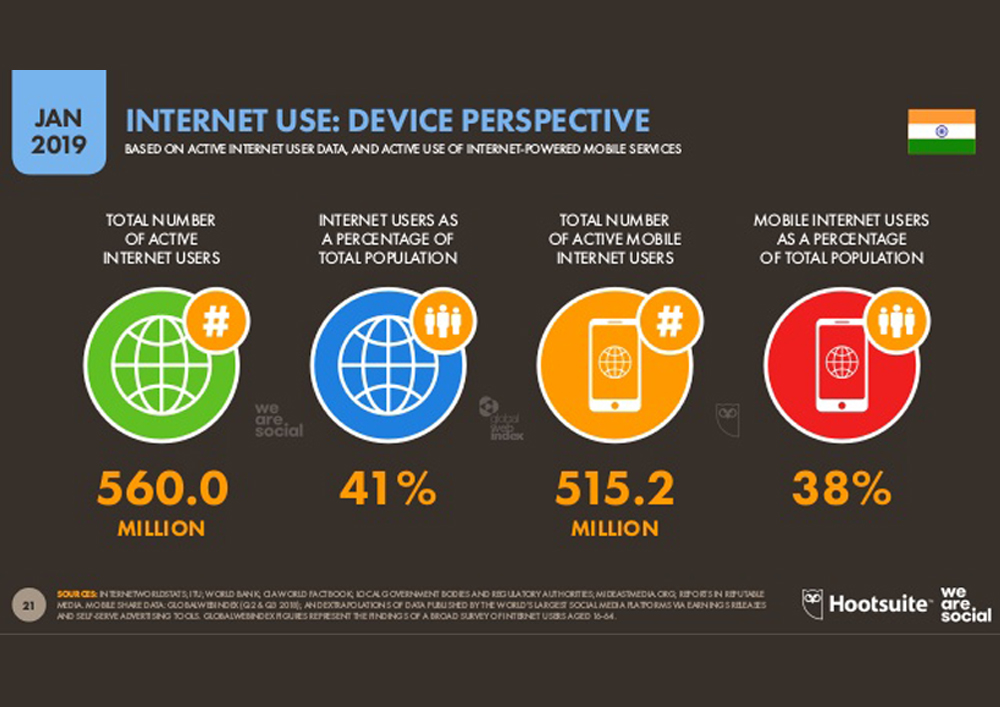Boost Your Business with Our Expert Digital Marketing Services
Digital marketing service is, advertising delivered through digital channels. It is a type of marketing that utilizes the internet and online-based digital technologies such as desktop computers, mobile phones, and other digital media and platforms to promote products and services.
Digital Marketing Services In India
Digital marketing services in India is becoming extremely popular due to cheap data connection and internet reaching the remotest place of the country. As more and more people come online, marketing in the hospitality industry is shifting heavily from traditional marketing to online marketing.
Digital marketing services are an essential component of any modern business strategy. These services encompass a range of techniques, such as SEO, social media marketing, PPC advertising, and email marketing, among others. With the growing importance of online channels, digital marketing services are becoming increasingly critical for businesses to connect with customers, build brand awareness, and drive revenue. By leveraging digital marketing services, businesses can target specific audiences, increase engagement, and ultimately, achieve their marketing objectives. In today's fast-paced digital landscape, it is more important than ever to make use of digital marketing services to remain competitive and reach customers where they are spending their time online. Advantages of digital marketing - Online marketing as several benefits compared to traditional marketing. In this modern digital world, using digital marketing benefits, one can reach a global audience. Having a website allows you to reach new markets. Compared to showing and advertisement to everyone, digital marketing allows specific targetted advertising thus reducing the cost drastically and create more conversions. Using digital strategy it is much easier to influence your target audience.
Hotel marketing has been completely revolutionized by digital marketing. The way customers choose a hotel, won't just depend on the rooms, now it also depends on how much likes, reviews you have and how active you are on social channels. Hotels, Homestays, and resorts now can reach the audience across borders and thus have unlimited potential to tap into global travelers and increase revenue.
Digital Marketing Scope: As the world moves into the era of 5g and as the world gets more closer to increasing connectivity, more and more people are consuming digital media. Inevitably life will become more dependent on machines and digital devices. Developed countries have already banned roadside hoardings and using physical banners inside cities. The scope of digital marketing is going to be unlimited and eventually, digital marketing will take over all other traditional marketing.
Fundamentals of digital marketing - As people increasingly use digital devices instead of visiting physical shops, digital marketing campaigns have become prevalent. Employing the fundamentals of digital marketing techniques with the combination of search engine optimization (SEO), search engine marketing (SEM), content marketing, influencer marketing, content automation, campaign marketing, data-driven marketing, e-commerce marketing, social media marketing, social media optimization, e-mail direct marketing, display advertising, e-books, etc.
The organic digital marketing channel includes all website traffic that comes from search engines such as Google, Bing, Yahoo.
People will discover your website when searching for a specific topic or product. If your online store is well optimized, search engines will position it among the top results of search pages. If you want more traffic, invest in search engine optimization (SEO).
The term “organic traffic” is used for referring to the visitors that land on your website as a result of unpaid (“organic”) search results.
Direct: Any traffic where the referrer or source is unknown
Email: Traffic from email marketing that has been properly tagged with an email parameter
Organic: Traffic from search engine results that is earned, not paid
Paid search: Traffic from search engine results that is the result of paid advertising via Google AdWords or another paid search platform
Referral: Traffic that occurs when a user finds you through a site other than a major search engine
Social: Traffic from a social network, such as Facebook, LinkedIn, Twitter, or Instagram
Other: If traffic does not fit into another source or has been tagged as “Other” via a URL parameter, it will be bucketed into “Other” traffic



